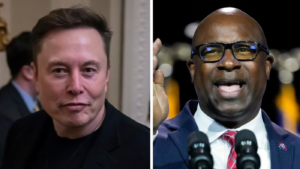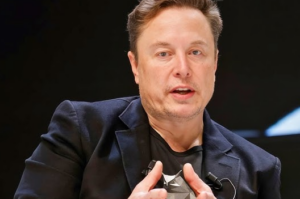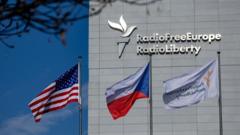Divergent responses from government agencies highlight a significant disconnect as Musk pushes for accountability in government spending.
**Confusion Reigns as Musk's Email to Federal Employees Divides Agencies**

**Confusion Reigns as Musk's Email to Federal Employees Divides Agencies**
Officials scramble to clarify Elon Musk's controversial request for federal workers to report their weekly accomplishments.
In a surprising twist, Elon Musk's recent email directed at U.S. government employees has sparked a wave of confusion across various agencies. The email, sent on Saturday evening, prompted federal workers to compile and report their accomplishments from the past week in a structured format. However, the mixed responses from numerous government departments regarding how to respond have left employees uncertain of their obligations.
The message, which reached millions of federal workers, includes a request to summarize achievements in five bullet points by the approaching deadline of midnight on Monday. The email did not clarify whether noncompliance would have repercussions, although Musk suggested that any failure to respond "will be taken as a resignation." This prompted various agencies to provide differing instructions, leaving many employees in a state of limbo.
At the FBI, newly appointed director Kash Patel advised staff to "pause any responses," indicating that the agency would manage its own review processes independent of Musk’s initial email. Similarly, the State Department communicated to its personnel that leadership would represent the agency's actions and that employees need not report outside of traditional channels.
Contrarily, messages from the Department of Justice acknowledged the authenticity of the email but emphasized the importance of not disclosing sensitive information. Other departments, including the Department of Defense and the National Security Agency, similarly suggested that employees wait for further instructions.
Criticism is brewing from federal employee unions, with the American Federation of Government Employees labeling Musk's directive as "cruel and disrespectful." They expressed intentions to fight against any perceived unlawful job terminations stemming from the email's repercussions.
The email’s timing coincided with President Trump's recent commendations of Musk, who has been leading an initiative named ‘Department of Government Efficiency’ (Doge) aimed at curbing government expenditure. While some Republican lawmakers have welcomed Musk's push for transparency and evaluation of government operations, others, such as Senator John Curtis, have expressed concern about his approach. Curtis appealed for greater empathy in considering the real-life implications of these government oversight efforts.
Despite the uncertainty surrounding the original email's impact, it raises essential questions on the relationship between private sector influence and the methodologies employed in public service environments. With roughly three million federal employees potentially impacted, the situation continues to evolve as agencies navigate Musk's unconventional request.
The message, which reached millions of federal workers, includes a request to summarize achievements in five bullet points by the approaching deadline of midnight on Monday. The email did not clarify whether noncompliance would have repercussions, although Musk suggested that any failure to respond "will be taken as a resignation." This prompted various agencies to provide differing instructions, leaving many employees in a state of limbo.
At the FBI, newly appointed director Kash Patel advised staff to "pause any responses," indicating that the agency would manage its own review processes independent of Musk’s initial email. Similarly, the State Department communicated to its personnel that leadership would represent the agency's actions and that employees need not report outside of traditional channels.
Contrarily, messages from the Department of Justice acknowledged the authenticity of the email but emphasized the importance of not disclosing sensitive information. Other departments, including the Department of Defense and the National Security Agency, similarly suggested that employees wait for further instructions.
Criticism is brewing from federal employee unions, with the American Federation of Government Employees labeling Musk's directive as "cruel and disrespectful." They expressed intentions to fight against any perceived unlawful job terminations stemming from the email's repercussions.
The email’s timing coincided with President Trump's recent commendations of Musk, who has been leading an initiative named ‘Department of Government Efficiency’ (Doge) aimed at curbing government expenditure. While some Republican lawmakers have welcomed Musk's push for transparency and evaluation of government operations, others, such as Senator John Curtis, have expressed concern about his approach. Curtis appealed for greater empathy in considering the real-life implications of these government oversight efforts.
Despite the uncertainty surrounding the original email's impact, it raises essential questions on the relationship between private sector influence and the methodologies employed in public service environments. With roughly three million federal employees potentially impacted, the situation continues to evolve as agencies navigate Musk's unconventional request.























